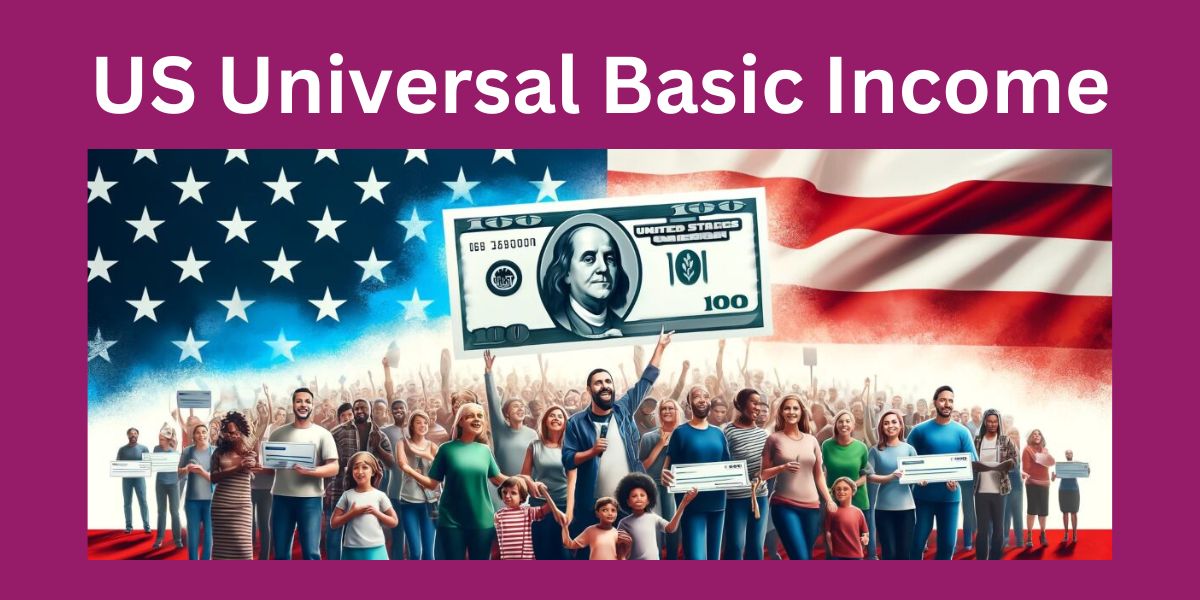Have you ever wondered what life would be like if everyone received a paycheck from the government, no strings attached? Sounds too good to be true, right? Well, that’s essentially what Universal Basic Income (UBI) is all about. UBI is a concept that’s been gaining traction in the United States and around the world. It proposes a regular, unconditional payment to every citizen, regardless of their financial situation. But how does it work? Who qualifies? And could it really become a reality in the U.S.?
Let’s dive into the fascinating world of UBI, breaking down what it is, how it operates, and who might be eligible to benefit from it.
What Is Universal Basic Income?
A Simple Definition
Universal Basic Income, often abbreviated as UBI, is a financial policy where the government provides a regular, fixed income to every adult citizen. The idea is that everyone, rich or poor, employed or unemployed, would receive this income unconditionally. It’s like a financial safety net, ensuring that everyone has the basics covered.
The Core Idea Behind UBI
The concept of UBI is built on the belief that financial security is a right, not a privilege. By providing a guaranteed income, UBI aims to reduce poverty, simplify the welfare system, and give people more freedom to pursue their goals without the constant pressure of financial instability. Imagine not having to worry about making ends meet; instead, you could focus on improving your skills, starting a business, or simply enjoying life more.
The History of UBI
Though UBI might seem like a modern idea, it’s been around for centuries. Thinkers like Thomas More and Thomas Paine floated similar ideas way back in the 16th and 18th centuries. The concept has evolved over time, but the core idea remains the same: a guaranteed income for all.
How Does Universal Basic Income Work?
The Basic Mechanics of UBI
UBI is designed to be a straightforward system. Every adult citizen receives a set amount of money at regular intervals, say monthly or annually. This payment is unconditional, meaning there are no requirements to meet—no job search requirements, no income limits, nothing. Whether you’re a millionaire or struggling to make ends meet, you receive the same amount.
Funding UBI: Where Does the Money Come From?
One of the biggest questions surrounding UBI is, “How do we pay for it?” There are several proposed methods for funding UBI:
- Taxation: Some suggest funding UBI through higher taxes, particularly on the wealthy or large corporations. This way, the wealth generated by the economy is more evenly distributed.
- Reallocation of Welfare Programs: Others propose reallocating funds from existing welfare programs. By simplifying the welfare system into a single UBI payment, the government could potentially save money on administration costs.
- Economic Growth: Proponents also argue that UBI could stimulate economic growth by increasing consumer spending. More money in people’s pockets could mean more spending, which in turn could boost the economy.
The Amount: How Much Money Would You Receive?
The amount of money provided under UBI can vary widely depending on the proposal. Some suggest a modest amount, just enough to cover basic living expenses like food and housing. Others advocate for a more generous amount that could provide a comfortable living. For example, some UBI proposals in the U.S. have suggested payments ranging from $1,000 to $2,000 per month.
Who Qualifies for Universal Basic Income?
The Universal Aspect: Everyone Gets It
As the name suggests, UBI is universal. That means everyone qualifies, regardless of income, employment status, or wealth. This universality is what sets UBI apart from other welfare programs that typically have strict eligibility criteria.
Citizenship and Residency Requirements
While UBI is universal, most proposals specify that it would only be available to citizens or permanent residents of the country implementing it. In the U.S., this would mean that only American citizens and possibly long-term residents would qualify for UBI payments.
Age Restrictions
Many UBI proposals also include age restrictions. Typically, UBI would be available to all adults, often defined as those aged 18 and older. Some proposals suggest a smaller UBI payment for children or teenagers, which would be managed by their parents or guardians.
Special Considerations for Vulnerable Groups
Although UBI is universal, some proposals include additional payments or benefits for particularly vulnerable groups, such as the elderly, disabled, or those living in high-cost areas. These additional payments would help ensure that these groups receive enough support to meet their unique needs.
The Benefits of Universal Basic Income
Reducing Poverty and Inequality
One of the most significant potential benefits of UBI is its ability to reduce poverty and income inequality. By providing everyone with a guaranteed income, UBI ensures that even the poorest individuals have enough money to cover their basic needs. This could drastically reduce poverty rates and narrow the gap between the rich and the poor.
Simplifying the Welfare System
The current welfare system in the U.S. is incredibly complex, with numerous programs, each with its own eligibility requirements, application processes, and rules. UBI could simplify this system by replacing multiple welfare programs with a single, straightforward payment. This could reduce administrative costs and make it easier for people to get the support they need.
Encouraging Innovation and Entrepreneurship
UBI could also foster innovation and entrepreneurship by providing people with a financial safety net. With a guaranteed income, individuals might be more willing to take risks, start new businesses, or pursue creative endeavors without the fear of financial ruin. This could lead to a more dynamic and innovative economy.
Improving Mental and Physical Health
Financial stress is a significant contributor to mental and physical health problems. By alleviating financial pressures, UBI could improve overall well-being. People might experience lower levels of stress, anxiety, and depression, leading to better health outcomes and a higher quality of life.
Empowering People to Pursue Their Passions
How many of us are stuck in jobs we don’t love, simply because we need the paycheck? UBI could give people the freedom to pursue their passions, whether that’s further education, artistic endeavors, or community service. With financial security, more people might choose to follow their dreams rather than just working to survive.
The Criticisms of Universal Basic Income
Cost: Is UBI Affordable?
One of the most common criticisms of UBI is its cost. Providing a regular income to every citizen would be incredibly expensive, and critics argue that it would require massive tax increases or cuts to other government programs. There’s also concern about whether the economy could sustain such a program in the long term.
Potential for Reduced Work Incentives
Critics also worry that UBI could reduce the incentive to work. If people receive money regardless of whether they work or not, some might choose not to work at all. This could lead to a decrease in the labor force and potentially harm the economy.
Inflation: Could UBI Lead to Higher Prices?
Another concern is that UBI could lead to inflation. If everyone has more money to spend, demand for goods and services could increase, leading to higher prices. This could potentially erode the value of the UBI payments, leaving people no better off than before.
The Redistribution Debate
Some critics argue that UBI is an unfair redistribution of wealth. They believe that people should earn their money through work and that giving everyone a guaranteed income is a form of unwarranted wealth redistribution. This argument is often rooted in the belief that hard work should be rewarded and that UBI could undermine this principle.
UBI in Action: Case Studies and Examples
The Alaska Permanent Fund
One of the most well-known examples of a UBI-like program is the Alaska Permanent Fund. Since 1982, Alaska has provided an annual dividend to all its residents, funded by oil revenues. While the amount varies each year, it typically ranges from $1,000 to $2,000. This program has been credited with reducing poverty and providing a financial cushion for Alaskans.
Finland’s UBI Experiment
From 2017 to 2018, Finland conducted a UBI experiment, providing 2,000 unemployed citizens with a monthly payment of €560, regardless of whether they found work. The results were mixed, but the experiment showed that UBI could improve mental well-being and reduce stress, even if it didn’t significantly increase employment.
Other UBI Experiments Around the World
UBI experiments have been conducted in various countries, including Canada, India, and Kenya. These experiments have provided valuable insights into how UBI could work in practice, though the results have been mixed, with some showing positive outcomes and others highlighting the challenges of implementing such a program on a larger scale.
The Future of UBI in the United States
Political Support for UBI
In recent years, UBI has gained support from various political figures in the U.S., including former presidential candidate Andrew Yang, who made UBI a central part of his 2020 campaign. Yang proposed a “Freedom Dividend” of $1,000 per month for every American adult. While his campaign didn’t win the nomination, it brought significant attention to the idea of UBI.
Public Opinion: What Do Americans Think?
Public opinion on UBI is divided. Some Americans support the idea, seeing it as a way to reduce poverty and provide financial security. Others are skeptical, concerned about the cost and potential impacts on work incentives. As with many policy issues, opinions often align with political ideology, with progressives more likely to support UBI and conservatives more likely to oppose it.
The Path Forward: Will UBI Become a Reality?
The future of UBI in the U.S. is uncertain. While it’s gained attention and support in recent years, significant challenges remain, including the cost, political opposition, and questions about how it would work in practice. However, as automation and AI continue to reshape the economy, UBI may become a more pressing issue, and it’s possible that we could see more UBI experiments or even a nationwide program in the future.
Conclusion: The Potential of UBI in the U.S.
Universal Basic Income is a bold and innovative idea that has the potential to transform society. By providing a guaranteed income to everyone, UBI could reduce poverty, simplify the welfare system, and empower people to pursue their passions. However, it’s not without its challenges, including the high cost and potential impacts on work incentives.
As the debate around UBI continues, it’s clear that this idea has captured the imagination of many. Whether or not it becomes a reality in the U.S. will depend on a complex mix of political, economic, and social factors. But one thing is certain: UBI is a concept that’s not going away anytime soon.
FAQs About Universal Basic Income
1. How much money would I receive under a UBI program?
The amount of money you would receive under a UBI program varies depending on the proposal. Some suggest $1,000 per month, while others propose different amounts. The exact figure would depend on the specifics of the program implemented.
2. Would I still need to work if I received UBI?
UBI is designed to provide a basic level of financial security, but it’s not meant to replace a full income for most people. While some might choose to work less, UBI would likely still be supplemented by income from work for many individuals.
3. How would UBI be funded?
UBI could be funded through various means, including higher taxes, reallocation of existing welfare funds, or economic growth stimulated by increased consumer spending. The exact funding mechanism would depend on the specific program.
4. Could UBI lead to inflation?
There is a concern that UBI could lead to inflation if increased consumer spending drives up prices. However, this would depend on various factors, including how the UBI is funded and the overall economic context.
5. Is UBI only for citizens, or could non-citizens receive it too?
Most UBI proposals in the U.S. suggest that only citizens or permanent residents would be eligible for payments. The specifics would depend on the particular program implemented.










